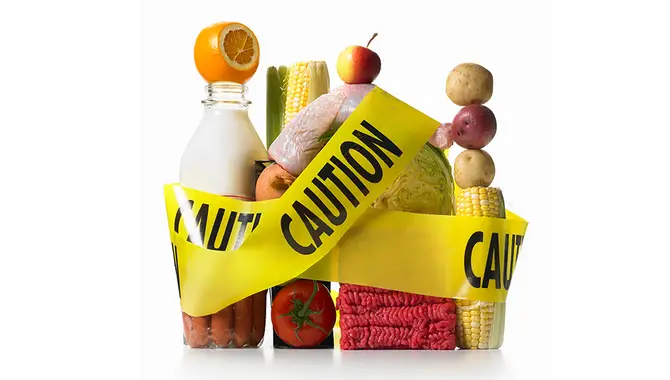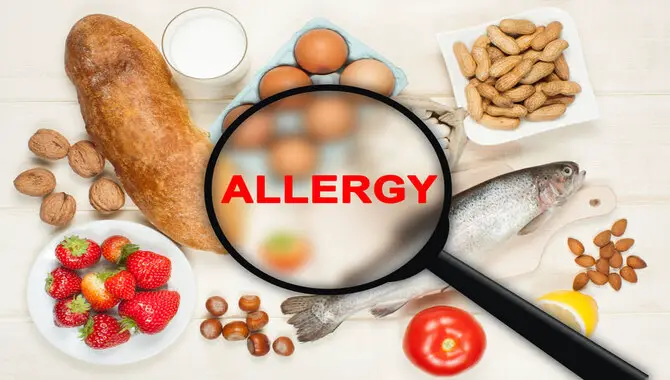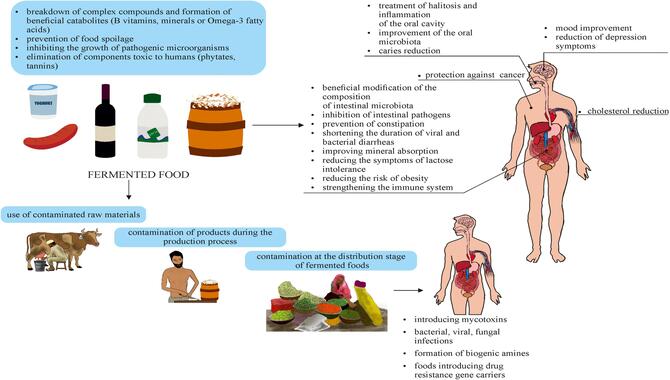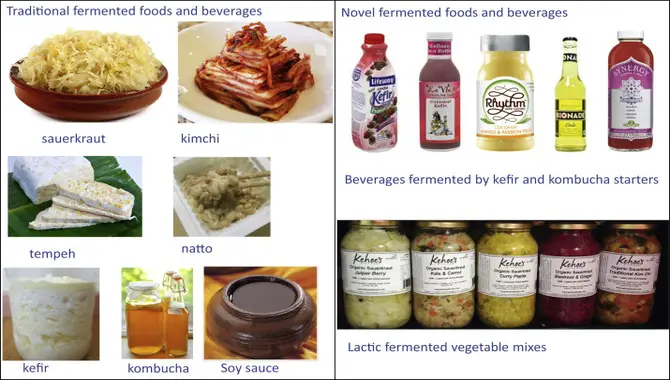Fermented foods are all the rage these days. From kimchi to sauerkraut, kombucha to kefir, there’s hardly a healthy trend left untouched by fermented foods. There’s a good reason for this, however. These foods offer digestive support and immune-boosting properties while also improving digestion.
And gut health -all of which are beneficial for overall health. The microorganisms in making fermented foods produce enzymes that aid digestion and improve the nutrient content of the food. These microbes also produce lactic acid, which makes fermented foods sour and tangy.
This is an important aspect of eating fermented foods. As it helps curb cravings for sugary or processed snacks and aids in weight loss. But before getting into why you should be incorporating fermented foods into your diet, let’s talk about when you should avoid eating fermented foods. We’ll cover the risks and benefits of fermentation and potential gut side effects. And whether or not fermentation is suitable for everyone.

When Can Fermented Foods Cause Problems?

You may notice changes in your body when you eat fermented foods, such as sauerkraut, kimchi, yogurt, or even sour milk. These changes include increased energy and a healthier digestive system. The microbes present in fermented foods aid digestion by breaking down fibers and creating beneficial acids and enzymes.
However, if you take too many fermented foods, then it can cause some problems. Some people experience bloating and gas after eating too many fermented foods like sauerkraut. Instead of avoiding all fermented foods completely, try taking them in small quantities to avoid any side effects.
7 Reasons To When Should You Avoid Eating Fermented Food

Some fermented foods, such as kimchi, are health-boosting probiotics that aid digestion and gut health. These foods can be high in beneficial bacteria, which can help with issues such as bloating, diarrhea, and constipation. Additionally, fermentation can preserve the nutrients and enzymes found in the foods.
However, fermentation could be better for some due to its effects on health. When you eat fermented foods, you’re consuming gut-friendly bacteria that help your gut maintain a healthy balance of good and bad bacteria. These bacteria also aid digestion, support immunity, and help with nutrient absorption.
However, some fermented foods may contain small amounts of naturally occurring microorganisms or yeast, which can be harmful if consumed in high amounts. So, it’s best to eat these foods in moderation. The following 7 reasons why you should avoid eating fermented foods when you have certain health conditions:
1.Unsafe Foods

Some bacteria and yeast are used to create foods such as cheese, yogurt, and sauerkraut. These foods are safe to eat when produced in a controlled environment, but they can become unsafe if not handled or cooked properly. Unsafe fermentation can produce harmful contaminants, including alcohol, gas, and odors.
To ensure safety when eating fermented foods, you must carefully follow the instructions on the package and avoid eating them if you have an allergy to any of their ingredients. Additionally, you should avoid eating fermenting food if you have a health condition that requires you to avoid certain types of food.
2.Poor Quality Or Contaminated Foods

Eating foods like sauerkraut, kimchi, or yogurt contains beneficial bacteria that help keep your digestive system healthy. These bacteria are present in fermented foods because they live on the surface of food and excrete enzymes that convert it into a more digestible form.
The process of fermentation changes the chemical composition of food, making it bad for health if it is not done properly. Poorly fermented foods can lead to adverse health effects like acidity, gas, and allergic reactions due to certain harmful microorganisms.
These microorganisms can also be present in contaminated foods like meat or vegetables from animals infected with E-coli. Avoiding poor quality or contaminated food is essential for maintaining good health. Always read the labels and check the expiration dates before buying any food to ensure its freshness and quality. Eating good quality and uncontaminated food will keep your body strong and healthy.
3.Food Allergies And Sensitivities

When eating fermented foods, it is crucial to make sure that you avoid eating them if you have a food allergy or sensitivity to them. This is because the fermentation process can cause the food to become contaminated with harmful substances.
If you eat fermented food that contains an allergen, your body will become hypersensitive to it and may develop an allergic reaction. The most common allergens in fermented foods are dairy products, nuts, and soy. It is, therefore, essential to read the ingredients list of any fermented food before consuming it to ensure that there are no allergens present.
It would help if you also were cautious about the fermentation process used in making the product, as some methods can cause more contamination than others. When eating fermented foods, it is important to maintain a healthy diet and pay attention to your body’s signals so that you do not inadvertently consume something that could cause a negative reaction.
4.Probiotics In Fermented Food

Fermented foods contain probiotics, bacteria that can help improve digestion. However, they can also contain harmful microorganisms that cause diarrhea and other health problems, such as diarrhea-causing bacteria. If you are pregnant or have a weak immune system, it is best to avoid eating fermented foods.
In addition to this, if you have any other medical conditions, you should avoid eating fermented foods. There is no definitive answer to when you should avoid eating fermented food, as it depends on your circumstances. It is always best to consult a health professional regarding your diet and health concerns.
5.Fermented Foods And Gut Health

Fermented foods contain beneficial gut bacteria that help digestion and promote health. However, some foods can promote the growth of bacteria, leading to digestive issues. For example, sauerkraut and kimchi are high in fermentable fibers, which can feed the good bacteria but also lead to the growth of bad bacteria in the gut.
This imbalance can result in digestive problems, such as diarrhea and constipation. Eating fermented foods like sauerkraut, kimchi, and yogurt is healthy if they are prepared properly and eaten in moderation.
However, it’s best to consult a doctor if you have any concerns about your gut health before eating them. In addition to the health benefits of fermentation, it’s also important to recognize its potential risks. This will help ensure you make informed decisions about your diet and health.
6.Potential Health Benefits Of Fermented Food

There are several potential health benefits of consuming fermented foods, such as consuming probiotic-rich foods that have been cultured and stored. Probiotics are microorganisms that aid in the digestion and absorption of nutrients by maintaining digestive health and supporting regular immune function.
Consuming fermented foods regularly can help boost the levels of these beneficial bacteria in the gut, which may help improve overall digestive health. Some fermented foods contain enzymes that can help break down protein, making them an ideal choice for people with sensitive stomachs.
Lastly, some fermented foods, such as kimchi, contain nutrients such as vitamin K and dietary fiber. These nutrients support good overall health and may help reduce the risk of certain diseases. Overall, there are many benefits to incorporating more fermented foods into your diet.
7.Restrictions And Food Sensitivities Related To Fermented Foods

Fermented foods contain beneficial bacteria and enzymes that help break down food into nutrients and energy. These benefits make fermented foods a popular choice in health-conscious diets. But certain types of fermented foods, such as sauerkraut, kimchi, and yogurt, can be sensitive to certain individuals.
Being sensitive to lactic acid and regularly consuming these foods may lead to adverse health effects. To ensure the health benefits of fermentation without the risks, it’s best to consult a doctor before starting a fermentation diet. This will allow you to determine whether or not you have food sensitivities and tailor your diet accordingly.
What Are The Risks Of Eating Fermented Food?

When it comes to consuming foods, we tend to get excited about the taste and the fact that they are made using natural ingredients. However, there are certain foods that you should consume with caution due to their health benefits and risk factors.
One such food is fermented food. With various foods like vegetables, dairy products, and even meat being fermented these days, it cannot be easy to figure out which ones you should avoid. The good news is that there aren’t any risks associated with eating fermented food; they can have many health benefits. However, it would help if you always went for the one that is made hygienically, ensuring quality and safety.
What Are The Drawbacks Of Eating Fermented Food?

There are several advantages of eating fermented foods. They are easy to digest, contain many important nutrients, and have various health-boosting properties. However, eating them in excess can lead to several drawbacks.
Fermented foods may cause gas and bloating for some people because the bacteria used to make the food releases gas into it. Also, some fermentation types may harm your health and cause digestive issues like dysentery, diarrhea, or even death. Thus, consuming fermented foods in moderation is better to get the desired benefits and avoid any potential risks.
Conclusion
When choosing whether to eat fermented foods, the answer is quite simple: if you don’t feel well after eating them, then avoid them. If you have any digestive issues, are not feeling well, or notice any other symptoms of discomfort after consuming fermented foods, then you should avoid them.
Eating fermented foods is an excellent way to add probiotics to your diet and reap the many health benefits that come with it. However, certain fermentations can produce higher levels of certain bacteria that may cause mild gastrointestinal discomfort for some individuals. Avoid eating fermented foods that are not made with proper ingredients and processing techniques.
These foods can cause various issues, such as digestive issues, allergies, and even cancer. The best thing to do is consult a health expert or nutritionist before making any dietary choices. They will be able to guide you on the right diet plan for your health. Avoiding all types of fermented foods can be difficult, but it is important to make small changes that can greatly impact your overall well-being.
Frequently Asked Questions
1. Who Shouldn’t Have Fermented Foods?
Ans: While fermented foods are a healthy and delicious way to improve digestion, some people should avoid them due to health concerns. This includes pregnant women, people with a history of food poisoning, and those who are breastfeeding.
Fermented foods can contain harmful bacteria that can cause food poisoning. If pregnant or breastfeeding, it is important to speak with a healthcare professional before consuming them.
2. Why Should You Not Eat Fermented Foods?
Ans: There is no scientific evidence that fermented foods are harmful. However, some people may have adverse reactions to them due to their individual dietary preferences or health conditions. If you are uncomfortable eating fermented foods, you can avoid them.
3. What Is A Bad Reaction To Fermented Foods?
Ans: Fermenting foods such as sauerkraut, kimchi, tempeh, and kefir can sometimes cause people to experience bad reactions such as bloating, gas, and diarrhea. If this happens to you, it is recommended that you stop eating the food and consult a healthcare professional.
4. What Time Of Day Should You Eat Fermented Food?
Ans: Generally, it is best to avoid eating fermented food during the morning and evening. This is because fermenting foods allows bacteria to convert food into lactic acid, which can cause gut issues in people with sensitive stomachs. Fermented foods are most beneficial when consumed in the morning or evening when the gut is generally most active.
5. Is There A Specific Time Of Day When It’s Best To Avoid Eating Fermented Foods?
Ans: There is no definitive answer to this question, as everyone’s gut bacteria is different, and some believe it is best to avoid fermented foods at any time. Some people believe it is best to avoid fermented foods early in the morning or late at night. As with anything else, do your research and listen to your gut instinct to find out when is the best time to avoid these foods.
